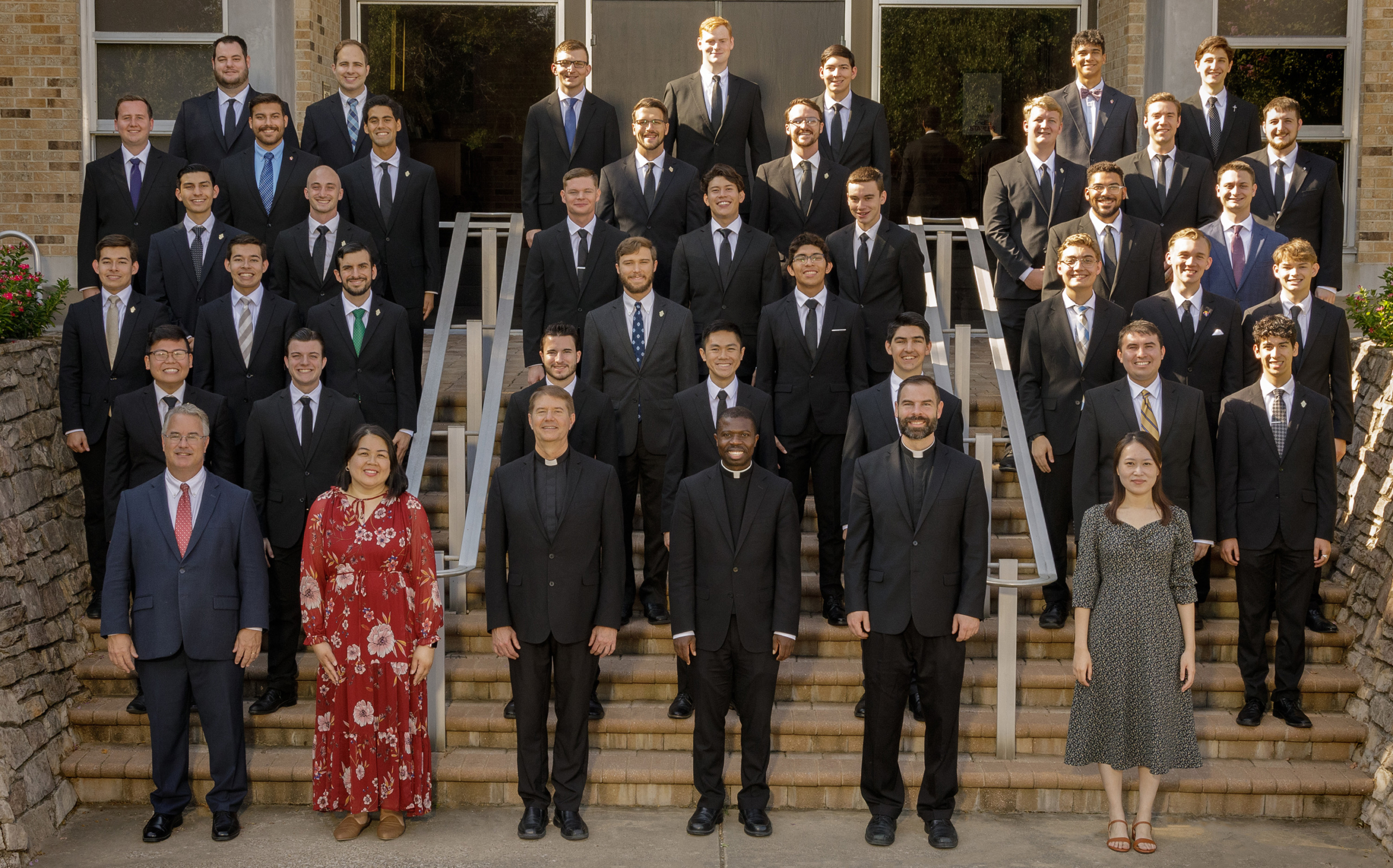Propaedeutic Formation Overview
The propaedeutic stage has two goals. It is a second period of discernment, conducted within an intensive community life, that provides the seminarians with time and space to focus on their relationship with Christ and to discover more clarity regarding his call for them. It also prepares them to enter into the discipleship stage by laying strong foundations in human and spiritual formation.
This stage requires men to live as a distinct community with their own designated formators, horarium, curriculum, and activities. Many elements are unique to the structure of the program at Holy Trinity Seminary.
The seminarians have their own living areas, classrooms, oratory, and dining facilities. They pray together several times each day and live a robust common life. The men participate in a technology fast, personal fitness activities, cook teams, manual labor, and a cycle of human formation classes that incorporate Scriptural, Christological, moral, and psychological perspectives. To promote more intentional discernment of the diocesan vocation, formation conferences emphasize topics of celibacy, obedience, and simplicity of life.
Major events unique to the propaedeutic stage include parish visits, weekly homeless ministry, and mission work, which allow the seminarians to encounter diverse communities and members of the universal Church. The spring mission trip provides the seminarians different perspectives on the concept of mission and what it means to be “sent.”
The men have several weekends of recollection and a five-day retreat. At the end of the year, they prepare for a 10-day wilderness excursion named Eremos. As the final element of the propaedeutic stage, Eremos represents the culmination of their physical and spiritual formation.
Formation, as the Church understands it, is not equivalent to a secular sense of schooling or, even less, job training. Formation is first and foremost cooperation with the grace of God. … The formation of priests means following a singular ‘journey of discipleship,’ which begins at Baptism, is perfected through the other sacraments of Christian initiation, comes to be appreciated as the center of one’s life at the beginning of Seminary formation, and continues through the whole life. While formation is a lifelong journey, the time spent preparing for ordained ministry is a privileged time of growth in self-knowledge and deepening intimacy with Jesus Christ [114].
With emphasis on the integral and non-fragmented nature of priestly formation, the PPF further explains how this formation is structured around the four dimensions of human, spiritual, intellectual, and pastoral formation:
The four dimensions of human, spiritual, intellectual, and pastoral formation are interrelated aspects of a human response to God’s transforming grace. Without attention to integration in all stages of formation, the overall goal of formation, configuration to the heart of and life of the Lord Jesus, cannot be achieved. … Through human formation the foundation is laid upon which the other dimensions can be received and lived. Through spiritual formation the seminarian learns to bring everything from the other dimensions into his relationship with Jesus Christ. Through intellectual formation he comes to a deeper understanding of the truths of faith and the human person, enriching his relationship with God, his understanding of himself, and his service to others. Through pastoral formation he learns to express the other three in pastoral charity, the overall goal of priestly formation [115-116].
The integration of these four dimensions aims at helping each seminarian to embrace his journey as treasure in an earthen vessel (2 Cor. 4:7). Through personalized formation, he achieves “a serene and creative interior synthesis between the two mysterious aspects of his humanity: his strengths and weaknesses” [PPF, 115].
Holy Trinity Seminary, besides being a house of priestly formation, is also a house for continued vocational discernment. This involves a man’s prayerful dialogue with God and with the Church in the discernment of his vocation. As St. Pope John Paul II’s post-synodal apostolic letter of priestly formation, Pastores Dabo Vobis (PDV), states: “The candidate to the priesthood should receive his vocation not by imposing his own personal conditions but accepting also the norms and conditions which the Church herself lays down, in the fulfillment of her responsibility” [PDV, 35].
PROPAEDEUTIC
Human
PROPAEDEUTIC SPIRITUAL
PROPAEDEUTIC INTELLECTUAL
PROPAEDEUTIC PASTORAL


